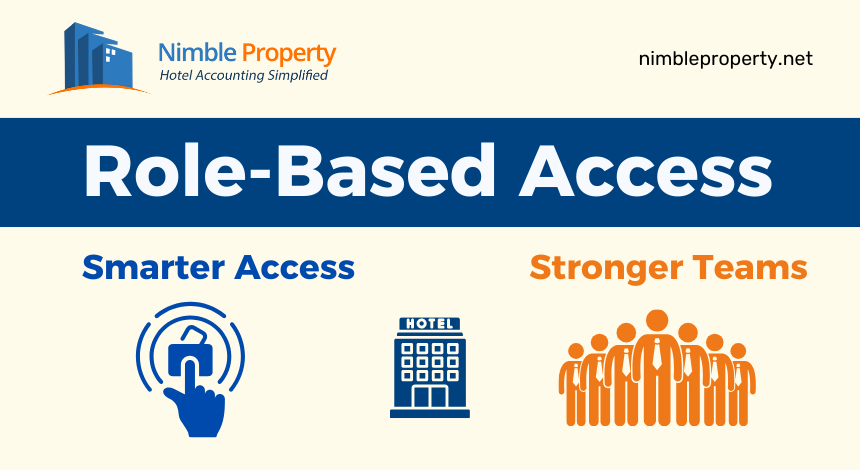Client: A Well-Known Hospitality Group
Location: Orlando, Florida
Portfolio: 9 franchised hotels across top brands.
Team Size: 80+ employees across front desk, operations, finance, and executive roles
Objective: Implement a secure, scalable accounting platform with role-based access
The Challenge: Uncontrolled Access, Growing Risk
As this multi-brand hotel group expanded, the limitations of its legacy accounting system became glaring. Initially built for small businesses, the platform failed to provide sufficient control over financial data access.
Sensitive data became insecure as more team members, from regional accountants to front desk employees, required access. Unintentional journal entry modifications, onboarding delays, and audit problems brought on by inadequate traceability were all on the rise.
Operational Warning Signs:
- Mid-Level Users’ Unauthorized Access to Financial Records
- Inadvertent deletions and overwriting of data
- Risks to franchise compliance because of inadequate reporting access
- Prolonged onboarding of new users
- Lack of Openness
Adopting Role-Based Access Control (RBAC) marked a turning point.
The team deployed Nimble Property, after exploring the accounting market, the role-based access was given as a core feature, unlike the other industry service providers, that usually charge for the same.
RBAC: What is It and Why Did It Matter?
RBAC enables job-function-based permission levels, ensuring that each team member has access to only the information they require:
Front desk staff → Daily revenue entries only
General Managers → Operational reports, not financial accounts
Accountants → Payables/receivables without owner dashboards
Executives → Consolidated, read-only multi-property views
This division of labor enabled improved processes, stronger security, and open accountability.
1. Protection of data
Internal fraud risks were decreased and unauthorized access was eliminated by limiting sensitive financials to essential roles.
2. Simplified Procedures
Only pertinent modules were displayed to each user, which decreased confusion and accelerated work completion.
3. A reduction in errors
Unintentional postings and alterations decreased dramatically when access was restricted.
4. Complete Responsibility
Audit logs are now used to track every action, making reviews easier and imposing accountability.
5. Permissions Specific to a Property
Executives have access to consistent dashboards, and teams work autonomously without misunderstanding properties.
6. Simplified Compliance
Access tailored to a franchise guarantees adherence to accounting rules, facilitating audit success.
7. Risk-Free Delegation
Regular financial chores can be handled by mid-level employees without requiring IT or system-wide access.
8. Growth-Scalable
Including hotels or new users? No rework is necessary; simply clone a role template.
9. Control via Remote
No IT ticket is required; administrators can change rights instantaneously and from any location.
10. Self-Belief in Possession
Owners increasingly use read-only dashboards to keep an eye on performance—visibility without exposure.
We were unaware that access control was a leadership tool in addition to an IT feature. It strengthened responsibility, established order, and allowed our financial team to concentrate on the important things— CFO, Premier Hotel Company
Key Takeaways
- RBAC is necessary for expanding hotel portfolios; it is not a choice.
- Operational agility, not simply protection, is fueled by data security.
- Users are empowered to operate autonomously, securely, and with confidence when they have structured access.
Conclusion: Security + Scalability = Success
In a business with activities spread across multiple buildings and brands, a lack of user access control can result in significant risk and inefficiency. This hotel group now works with clarity, compliance, and confidence thanks to a structured, role-based accounting platform, and it can grow more quickly than ever before.

